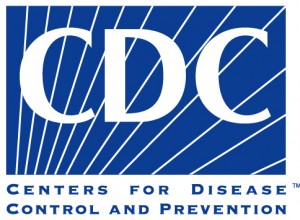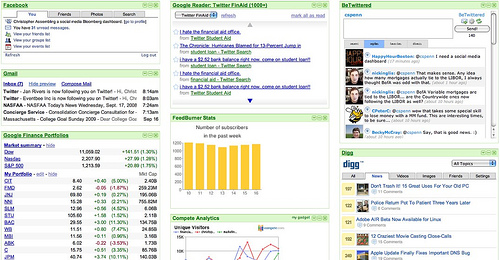 Speaking of experts, I would deem Craig Lefebvre as one of them, and an amazing one. On his blog, he recently posted a set of questions terming it “An Environmental Scan of Social Marketing.” In a brave and humble (very humble) attempt, I am going to address my responses here in the form of a blog post.
Speaking of experts, I would deem Craig Lefebvre as one of them, and an amazing one. On his blog, he recently posted a set of questions terming it “An Environmental Scan of Social Marketing.” In a brave and humble (very humble) attempt, I am going to address my responses here in the form of a blog post.
I highly encourage discussion because as another expert I love, Chris Dorobek would say, “all of us are smarter together than each of us individually.”
1. When is it product marketing and when is it social marketing?
This conversation can roll into a number of conversations, but I feel the question is really getting to “What is social marketing and how to you define it?” WIkipedia has it’s answer, and I know Stephen Dann has developed a wonderful definition as well. In sum and in brief, I would say that social marketing begins with influencing behavior change for social good. And on that same note, I would strongly encourage diving into more research beginning with the Social Marketing Quarterly, Andreason’s Social Marketing in the 21st Century, and some of Stephen Dann’s research.
2. What is the size of the social marketing market?
Now, we don’t have an association. We don’t have full, formal degree programs (at least in the U.S.) yet. But, I would still argue that the social marketing market is quite larger than most realize. I propose that social marketing is a much wider umbrella than it has been characterized in the past. Social marketing encompasses public health, but also civil safety, social change, environmental issues, non-profit causes, and as I proposed in my master’s thesis, even has strong similarities when it comes to strategies, tools and ehical frameworks of journalism and advertising.
3. What are the 3 major issues in social marketing?
In terms of the field itself, I would say there are three persistent issues. These include the branding of the field, creating formal education programs, and providing avenues for collaboration and best practices such as an international or national association.
4. What are the red flags for who does, or does not, design and implement social marketing programs?
This list could be very in-depth, but I think the most common red flag given is when some confuse social marketing with social media marketing. Blogger Andre Blackman had a great post this week distinguishing between the two. Social media can be applied within the social marketing framework, but social marketing is a much bigger net than social media.
5. How many social programs (or what percentage of them) are evaluated?
This might depend on how you define “social programs,” whether government funded, community based or non-profit driven. I might have to call on some of our other social marketing people to respond to this question. As an educated guess, I would say most programs have some sort of benchmarks that they are evaluated on. I do not have an actual percentage on hand though. To what extent are they evaluated and/or should be evaluated may be other good questions.
6. What are some of the more sophisticated methods used in these evaluations?
Both this question and the next depend largely on what is actually measured and why. And thus, deserves a much larger conversation than these lines can provide. For example, as many communications leverage social and mobile technologies, data analytics will be critical. Once the new tools are so “new,” people will be wanting to show results and extract meaning. Thus, programs like Salesforce, Radian6, and others are largely being researched to bring programs full circle so that analytics drive strategy.
7. What types of methods are used in formative research?
Formative research may include both qualitative and quantitative research methods, or a triangulation strategy that calls for a mixture of both. Some different types of research formats include a needs assessment, developing audience profiles, media scans, environmental scans, surveys, in-depth interviews, focus group testing, usability studies, and more.
8. What percentage of social marketing program budgets are devoted to evaluation?
This is a good question whether social marketing or just marketing in general is being discussed. Often, I would say that evaluation is considered too late in the game or not stretched through as much as it could be. It is important to make measurable objectives from the beginning and think out those baselines before implementing. Also, it often depends on the client, project, task, and resources available that determines how much of the budget is devoted to evaluation. Thus, as a professor might say, it depends. Now, another good question might be: how much should be devoted?
9. Who are the innovators in the field?
That can be YOU! In terms of organizations, the National Centre of Social Marketing in the U.K. is doing great work that many of us are excited about. In the United States, the CDC’s e-Health Marketing group tends to lead the way. I would also add that both AIDS.gov and the EPA are also making great strides with some of their case studies that apply new media to communications and behavior change.
10. Who are the premier thought leaders?
In no particular order: Bill Smith, Alan Andreasen, Stephen Dann, Michael Rothschild, Philip Kotler, Gerard Hastings, Mike Newton-Ward, Nancy Lee, Craig Lefebvre, Nedra Weinreich, Doug Mckenzie-Mohr, Jeff French, Clive Blair-Stevens, Francois Lagarde, Seynabou Mbengue, Tane Cassidy, Mike Kujawski, Katherine Lyon Daniel, you….you….and did you get, that the next one could be YOU? I know it said premier, but all of these people and others are great. Together, we can all help build the social marketing field.
11. What conferences and publications do you use to keep up with the field?
Social Marketing Quarterly, the C-Change e-newsletter, numerous blogs, numerous books, the Social Marketing Listserv, the Social Marketing Wiki, events in the U.K., events at the University of South-Florida, and others. Additionally though, I also look to non-profit organizations and publications, as well as international development, new media and others to review best practices in other fields and see how they may resonate within the practice of social marketing.
In sum, many of these questions focused around evaluation. In other words, how do we know that what we are doing is working? Now THAT’S a conversation worth having. Now it’s your turn. How do you answer some of these questions (especially 5-8)? And, what other questions do you also have?
Tagging: Spare Change, Pulse and Signal, Social Marketing Panorama, Stephan Dahl






